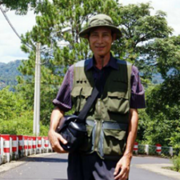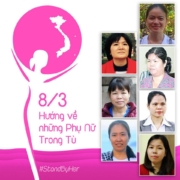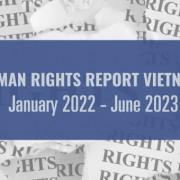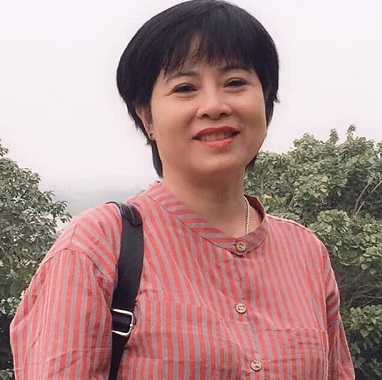Vietnam Legal Update – February 2022
Concerning Freedom of Expression
While the crackdown against freedom of expression, freedom of the press and internet freedom in Vietnam has been blatant and there have also been explicit violations of Vietnam’s human rights commitments, there are many other behind-the-scenes legal developments that have failed to attract the same attention by Vietnamese citizens, human rights organizations and the international community. However, these hidden practices play an important role in consolidating censorship and in suppression of freedom of expression by the Vietnamese government.
This periodic legal update is The 88 Project’s effort to monitor and document the legal developments related to freedom of expression in Vietnam. Bringing them to light and under the scrutiny of human rights observers will help hold the Vietnamese government accountable in the implementation of the human rights commitment that the authorities have made to their own citizens and to the international community.
-
Directive 12/CT-TTg (May 2021): The Origin of the COVID national crackdown
A Reminder of Restrictions on Freedom of Expression, the Free flow of Information and Public Discussion
There have been debates among Vietnamese on how researchers and NGOs should allocate the responsibility for crackdowns, arrests, and harassment of citizens and activists either by local governments or the national government.
In the midst of the COVID pandemic, Directive 12/CT-TTg, issued on May 12, 2021 concerning “enhancement of propaganda, directing the use of communication activities and press to defend the fatherland, and the handling of press and communication violations,” is a strong reminder that there is no isolated incident carried out solely at the discretion of local authorities.
The Directive elaborates further on the requirement of “strictly handling those who spread information that is false, negatively affecting the anti-pandemic campaign” (Item 2.4) of Notice No. 172 of the Vietnamese Communist Party (VCP) Politburo on March 20, 2020. It is the first legalized effort to re-establish the government’s control over COVID information. The VCP and the central government have always ordered their subordinates to tighten media controls and crack down on freedom of expression online. The wave of arrests and harassment regarding criticisms of the government’s failure to deal with the pandemic appeared much sooner under the arbitrary auspices of the VCP.
Firstly, Prime Minister Pham Minh Chinh requested the Ministry of Information and Communications to:
- Work closely with the Central Propaganda Department (of the VCP) and the Journalists Association of Vietnam to prevent the appearance of “toxic” information and to be prepared for any conspiracies and sabotage plans of the “reactionary forces”;
- Strictly control information and activities in the news media and social media and promptly act against any related violations;
- Cooperate with other ministries, including the Ministry of Public Security and the Ministry of Defense; utilize technology to identify and address any toxic information or violations of the dissemination of information on the internet.
(Section 2 of Directive 12)
Prime Minister Pham Minh Chinh also requested the Ministry of Public Security to:
- Cooperate with the Central Propaganda Department and the Ministry of Information and Communications to identify, counter, prevent, inspect and properly deal with malicious and toxic information that violate Vietnamese laws and the ideological foundation of the Communist Party;
- Direct other local public security departments to actively engage in disseminating positive information and combating conduct that might be harmful to the public interest and national security.
(Section 4 of Directive 12)
Regarding other ministries, such as the Ministry of Culture, Sports and Tourism, and the Foreign Ministry, the prime minister ordered a complete and comprehensive implementation of the Directive to make sure that the internet environment is clean.
While the government has assumed a zero tolerance approach against information it deems to be against its COVID-19 campaign since March last year, and has imposed legal actions to achieve its goals, the COVID-19 outbreak in 2021 likely led to the adoption of this directive, which signified another intense crackdown against any information unfavorable to the government in its COVID campaign, resulting in a surge of arrests and fines against the authors of such information. According to our own very conservative estimate, there are already 12 individuals arrested and/or harassed for questioning or criticizing the government’s failure to contain COVID. Many Vietnamese have been fined for voicing their concerns.
-
Circular 30/2021/TT-BGDĐT (November 2021): Prior Censorship Down to the Kindergarten Level
In one of the latest legal instruments drafted and passed by the Ministry of Education and Training (MET), we have another glimpse of the meticulous and overly controlled censorship system in Vietnam.
In Circular 30/2021 concerning compilation, assessment, approval and selection of educational materials for early education institutions, the MET reasserts its prior censorship over the lowest and most unpolitical level of education by:
- Setting vague criteria to designate who can and who cannot participate in the compilation process (for instance, those “having good moral character”)(Article 4.1.b).
- Demanding that every material and document must go through a State-controlled “Assessment Committee” before publication (Article 5);
- A general requirement that any material, among other requirements, must be “consistent “with the Communist Party’s guidelines and policies” and “with the country’s culture, history, ethics, fine customs and habits” (Article 3).
Circular is a detailed legal document in Vietnam that supposedly guides individuals and organizations in carrying out their business in accordance with the law. However, we can see that Circular 30 is short and not at all specific.
This is a common feature of most legal documents in Vietnam, especially concerning freedom of expression, censorship, and other related issues.
The strategy allows the competent authorities to continue to explain the law in whatever way they want.
For instance, what constitutes “good moral character”? This criterion has been employed in countless legal documents related to criminal law, election law and administrative law. It enables the authorities to manipulate the candidate selection process, influence evaluation procedures or produce false evidence against civil rights activists during trials…. In this case, “have good moral character” serves as a safeguard clause to make sure that no unwanted individual, even with good credentials, can be a part of the process of compiling educational materials.
-
Decree 86/2021/NĐ-CP (September 2021): A Reminder for Academics Abroad
Decree 86 is not an entirely novel legal instrument, as it continues the legacy of Decision 5/2013/QD-TTg. However, Decree 86 can be seen as a codification of the Vietnamese government’s attempt to consolidate its ideological control over overseas students and scholars.
While providing some protections for students who want to study abroad in an over-saturated and under-regulated market, this document however mainly reasserts the duties of Vietnamese academia wherever they are.
- According to Decree 86, overseas students are divided into two groups: overseas students depending on state funding and overseas students in general (self-funded or those receiving non-governmental scholarships). However, both groups are firmly required not to criticize the government in any shape or form, and to affect “diplomatic relations” between Vietnam and the host state (Article 6.2.k and Article 14.2.a).
The word choices are random and vague as usual, such as how can a citizen’s conduct and speech affect the diplomatic relations between countries?
- Similarly, teachers and academics who are currently working for domestic educational institutions and who travel abroad to teach, for academic exchanges, and research (with or without State funding involved) must comply with some strict and vague requirements, such as “having good moral and political character certified by the direct supervising authority.” In addition, they must periodically report about their trips and also must have their trips, agendas, and research content approved prior to their departure (Article 19.2 (l) and (đ)).
-
Decision 2576/QĐ-BVHTTDL (October 2021): “Combatting” Freedom of Religion
Decision 2576 gives us another depiction of how the central government effectively and systematically imposes views and controls the mass media. Based on Directive 219/QĐ-TTg by which the prime minister approved the Ministry Communication and Media’s project on supporting information and propaganda on ethnicity and religion (usually for five-year period), Decision 2576 set out the narrative, specific programme and ways to air such programme to “combat” superstition and “heresies,” with the funding from state budget.
In this instance, the Ministry of Culture, Sport and Tourism (MCST) allocates a quota to the national Vietnam News (VNews) to produce 10 television reports about religion, nationalism and combating reactionary elements.
For instance, Report No. 5 must disseminate information to “help” the public to “identify heresies and non-sanctioned religions within ethnic-minority communities” (Section II.3).
Report No. 7 must “alert the public about the religious conversion phenomenon,” explain the danger and point out reactionary elements that encourage religious conversion in remote areas. This report, which was carried by VNews, is one example.
Report No. 8 must attack religious movements that are deemed covert political forces with the intention to destabilize national security. These campaigns have played an essential role in the crackdown against various independent religions such as “Ha Mon”, “Duong Van Minh,” or “Hoi thanh Duc Chua Troi.” This report carried by VNews is an example.
© 2022 The 88 Project
Resources:
(1) Chỉ thị 12/CT-TTg năm 2021 về tăng cường công tác tuyên truyền, định hướng hoạt động truyền thông, báo chí phục vụ nhiệm vụ bảo vệ tổ quốc; kịp thời chấn chỉnh và xử lý các vi phạm trong hoạt động báo chí, truyền thông do Thủ tướng Chính phủ ban hành, vào ngày 12/05/2021
Directive 12/CT-TTg on “enhancing propaganda, guidance for press and communication activities in order to defend the fatherland; promptly addressing violations concerning press and communication activities”, issued by the prime minister of Vietnam, on May 12 2021
(2) Thông tư 30/2021/TT-BGDĐT quy định về việc biên soạn, thẩm định, phê duyệt, và lựa chọn tài liệu để sử dụng trong các cơ sở giáo dục mầm non do Bộ trưởng Bộ Giáo dục và Đào tạo ban hành, vào ngày: 05/11/2021
Circular 30/2021/TT-BGDĐT on the compilation, evaluation, approval, and selection of materials for use in preschool educational institutions, issued by the Minister of Education and Training on November 5, 2021.
(3) Nghị định 86/2021/NĐ-CP Quy định việc Công dân Việt Nam ra nước ngoài học tập, giảng dạy, nghiên cứu khoa học và trao đổi học thuật, do Chính phủ ban hành, vào ngày 25 tháng 9 năm 2021
Decree 86/2021/NĐ-CP on regulating the study, teaching, scientific research and academic exchanges abroad involving Vietnamese citizens, issued by the Government on September 25, 2021
(4) Quyết định 2576/QÐ-BVHTTDL năm 2021 về Kế hoạch triển khai thực hiện nhiệm vụ “Tuyên truyền về hoạt động tín ngưỡng, tôn giáo; đấu tranh với các hình thức lợi dụng tín ngưỡng, tôn giáo để hành nghề mê tín, trục lợi, gây ảnh hưởng xấu đến văn hóa dân tộc, tôn giáo, đời sống nhân dân”, ban hành bởi Bộ Văn hóa, Thể thao và Du lịch, vào ngày 26 tháng 10 năm 2021.
Decision 2576/QÐ-BVHTTDL 2021 on the Implementation of “National propaganda concerning beliefs and religious activities; the fight against the misuse of freedom of beliefs and religions to practice and profiteer from superstition, and adversely affect the national culture, religion and public life,” issued by The Ministry of Culture, Sports and Tourism, October 26 2021.







